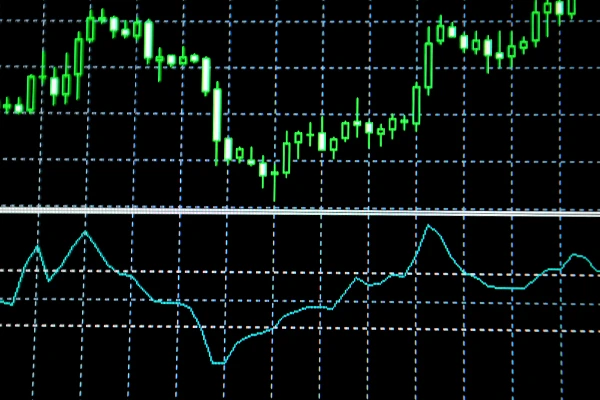Powerful CCI Indicator Review: Unlocking Trading Opportunities
The Commodity Channel Index (CCI) is a versatile technical indicator that has been widely used by traders across various markets, including Forex. It was developed by Donald Lambert and is primarily used to identify market trends and potential reversals. In this article, we will delve into the CCI’s calculation, its strengths, and how it can be effectively incorporated into different trading strategies.
Understanding the CCI Calculation
The CCI is a relatively complex indicator, but its core concept is straightforward. It compares the current price to an average price over a specific period. A high positive value indicates that the current price is significantly above the average, suggesting an overbought condition. Conversely, a low negative value implies an oversold condition.
The CCI Indicator calculation involves the following steps:
Calculate the Typical Price :
TP = (High + Low + Close) / 3
Calculate the Simple Moving Average (SMA) of the Typical Price:
SMA = Sum of TP for the past n periods / n
Calculate the Mean Deviation (MD):
MD = Sum of absolute values of (TP – SMA) for the past n periods / n
Calculate the CCI:
CCI = (Typical Price – SMA) / (0.015 * MD)
The standard CCI setting uses a 20-period lookback for calculations, but traders can experiment with different periods to suit their trading style and market conditions.
Don’t be overwhelmed by the formula! Most trading platforms calculate CCI automatically. Focus on understanding how to interpret the results.
The CCI oscillates above and below a zero level. Generally:
- CCI above +100: Market is overbought, indicating potential price reversal.
- CCI below -100: Market is oversold, suggesting a possible price rebound.
However, relying solely on these levels can be misleading
Applying the CCI in Trading Strategies
The CCI can be employed in various trading strategies, both as a standalone indicator and in combination with other tools. Here are some common approaches:
1. Overbought/Oversold Trading
Core concept: When the CCI moves above a certain level (typically +100), it suggests an overbought condition, indicating a potential price reversal. Conversely, a CCI reading below -100 signals an oversold condition, hinting at a possible price upturn.
Strategy: Traders can enter short positions when the CCI crosses below the +100 level and cover them when it moves back above. Similarly, long positions can be initiated when the CCI crosses above the -100 level, with a target of closing the position when it returns below.
2. Divergence Trading
Core concept: Divergence occurs when the price and the CCI move in opposite directions. A bullish divergence happens when the price makes a lower low, while the CCI forms a higher low. This suggests potential bullish momentum. Conversely, a bearish divergence is characterized by a price making a higher high and the CCI forming a lower high, indicating potential bearish pressure.
Strategy: Traders can use divergence signals as early warning signs of potential trend reversals.
3. Trend Following
Core concept: The CCI can be used to confirm and ride existing trends.
Strategy: When the CCI is consistently above the +100 level, it suggests a strong uptrend. Traders can look for buying opportunities during pullbacks, with the aim of riding the upward momentum. Conversely, a CCI consistently below the -100 level indicates a strong downtrend, providing opportunities for short selling.
4. Combining CCI with Other Indicators
Core concept: Enhance the reliability of trading signals by using the CCI in conjunction with other indicators.
Strategy: Popular combinations include CCI with moving averages, RSI, or support and resistance levels. For example, a bullish crossover of a short-term moving average above a long-term moving average can be confirmed by a CCI reading above +100.
Would you like to delve deeper into a specific CCI-based strategy or discuss other technical indicators?
CCI and Other Indicators
Combining CCI with other indicators can enhance signal reliability:
- CCI and Moving Averages: A bullish crossover of a short-term moving average by a long-term moving average can be confirmed by a CCI move above the +100 level.
- CCI and RSI: Overbought/oversold conditions identified by both CCI and RSI can increase the probability of a trend reversal.
Cautions and Considerations - Lagging Indicator: CCI is a lagging indicator, meaning it confirms trends rather than predicting them.
- Market Conditions: CCI’s effectiveness can vary across different market conditions and timeframes.
- False Signals: Like any indicator, CCI can generate false signals. Use it in conjunction with other analysis methods.
Important Considerations
While the CCI is a valuable tool, it’s essential to remember that no indicator is perfect. False signals can occur, and market conditions can change rapidly. Therefore, it’s crucial to use the CCI in conjunction with other analysis methods and risk management strategies.
Additionally, consider experimenting with different CCI settings to find what works best for your trading style. Backtesting can help you optimize your parameters and improve your overall trading performance.
By understanding the CCI’s calculation and applying it effectively within different strategies, you can enhance your trading decision-making and potentially improve your results.
Disclaimer: This article is for informational purposes only and does not constitute financial advice. Trading involves risk, and past performance is not indicative of future results.
Happy trading
may the pips be ever in your favor!











One Comment
Interested in hearing new ideas and connecting with others.
I suggest you try this jam:
https://www.mql5.com/en/market/product/139945